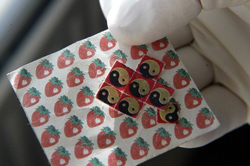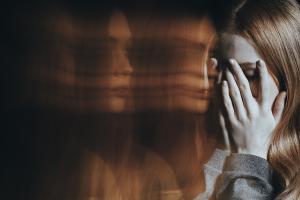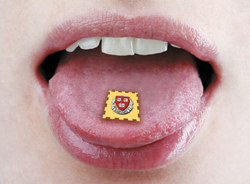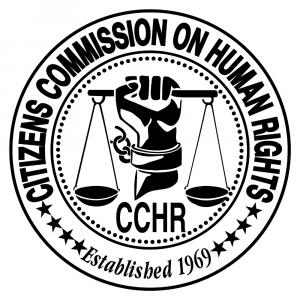A Curious Disconnect: Hallucinogen Researchers vs. Psychedelics Lived Experience

Hallucinogens are powerful psychoactive substances that cause profound distortions in a person’s perceptions of reality, which can be accompanied by impaired judgment, anxiety, depression, and extreme mood changes including psychosis.

Hallucinogenic drugs can disrupt a person’s ability to think and communicate rationally, or even to recognize reality, sometimes resulting in bizarre or dangerous behavior.

Adverse psychological effects of psychedelics range from short-term “bad trips” to recurring perceptual distortions, or “flashbacks,” to the long-lasting condition of persistent psychosis.
In clinical studies assessing psychedelics for mental health treatment, researchers downplay harms, at odds with lived experience reported online.
Hallucinogens are powerful psychoactive substances that cause profound distortions in a person’s perceptions of reality, which can be accompanied by impaired judgment, anxiety, depression, and extreme mood changes including psychosis.
The National Institute on Drug Abuse (NIDA) warns that hallucinogens “can disrupt a person’s ability to think and communicate rationally, or even to recognize reality, sometimes resulting in bizarre or dangerous behavior.” NIDA also states that “hallucinogenic drugs are associated with psychotic-like episodes that can occur long after a person has taken the drug.”
In contrast, some psychedelics researchers have reported that psychological adverse effects are of short duration or rarely happen.
For example, citing a number of hallucinogen studies, Johnson, Richards and Griffiths (2008) state that the risk of a psychotic reaction lasting more than 48 hours is “very rare,” the incidence of lasting perceptual abnormalities “is thought to be very uncommon,” and “reactions to hallucinogens involving violence and self-destructive behavior are rare.”
Similarly, after analyzing randomly selected data from the National Survey on Drug Use and Health, Krebs and Johansen (2013) concluded: “Adverse effects of psychedelics are usually short-lived; serious psychiatric symptoms following psychedelic [use] are typically resolved within 24 hours or at least within a few days.” Further, they write that “dangerous behavior leading to suicide or accidental death under the influence of psychedelics is regarded as extremely rare.”
This is at odds, however, with the lived experience reported in readers’ online comments in response to a recent New York Times article by health and science reporter Andrew Jacobs on a coming “psychedelics revolution.” While the readers’ reports are anecdotal, they challenge claims that adverse reactions to hallucinogens are rare or short-lived.
Concerning “bad trips” and other acute adverse effects, here are some of the readers’ comments, edited for brevity:
• “Four years ago there was a ‘thump, thump, thump’ overhead. At the bottom of a steep incline was a young man wearing only one sock. He had climbed up onto our roof via a carport, ran over and jumped off. While he was fairly incoherent, he did mention LSD and a ‘bad trip, man.’”
• “A student I knew took some LSD, thought he could fly down a staircase, tried to and broke his neck and died.”
• “I had a bad hallucinating LSD trip. I never did drugs again. The most frightening experience of my life. Very traumatizing even decades later in the recounting.”
• “I suffered a horrific experience using LSD. My fear is I could go down a terror-filled rabbit hole once again.”
• “My brother had a very bad trip. He believed the telephone booth he was in was melting and he ran screaming down the street.”
• “While tripping on LSD, my sister walked on the rails of the elevated subway and [was] saved by a [police officer]. My neighbor nearly burned his house down while tripping.”
Readers reported long-lasting adverse effects:
• “I had a real bad time with LSD, taking it for the first and last time. My experience was frightening. The effect was periodic panic attacks for a couple of years.”
• “My casual use of LSD deepened my depression.”
• “The [LSD] unlocked a door that transformed my previously depressive self into a sleepless, [schizophrenic], manic psychotic, complete with hallucinations and delusions. That went on for six weeks or so and included hospitalization, lithium and antipsychotic [drugs].”
Concerning persistent psychosis, readers wrote:
• “My brother, who had taken [LSD] many times before, was given a massive overdose and spent the rest of his short life insane.”
• “I knew a couple of college-age students back in the 60s who ‘crashed’ badly [after taking hallucinogens], were hospitalized, never came out of it.”
• “[I have] several friends who ended up in mental hospitals thanks to the ‘healing’ power of hallucinogens.”
• “My best friend from high school became schizophrenic after taking psychedelic drugs.”
• “I was a stable person, but after using [psychedelic drugs], I became sporadically psychotic. I was in and out of psych wards. I started hearing voices constantly. I thought suicide was inevitable. Instead, I stopped doing the drugs. Now I’m sane, healthy, happy.”
Two readers reported incidents of violent or self-destructive behavior in reaction to psychedelics:
• “An acquaintance had a psychotic episode after periodic use of LSD. She attacked someone with a pair of scissors.”
• “My brother took a massive amount of [psilocybin] mushrooms three years ago, which induced mania. He continued to take mushrooms and took his life in January 2021.”
Psychiatrist Peter Breggin understands the dangerous effects of LSD use. “Having lived through the 1960s and witnessed directly the effects of LSD and other hallucinogens on essentially normal people, there is no doubt this causes psychotic breaks often leading to prolonged emotional disturbance,” he said, adding, “the use of [hallucinogens] in so-called treatment is not new, but was discarded decades ago because of repeated disasters.”
Psychedelic-assisted psychotherapy comes as a hoped-for solution to what one psychedelics researcher aptly called the triple crisis in psychiatry: the lack of validity in psychiatric diagnosis, the lack of understanding of the cause or development of mental disorders, and a halt in the research and development of the psychotropic drugs that are psychiatrists’ primary mode of treatment.
Currently, there are some 70 registered clinical studies underway to investigate psychedelics as treatment for psychiatric disorders. If the drugs are eventually approved by the FDA, biotech analysts say annual sales with “treatment-resistant” patients could reach $10 billion, and much more if psychedelics eventually replace current antidepressant and antipsychotic drugs.
Meanwhile, in an attempt to save the field of psychiatry from its crisis of failure, human lives and sanity are being put at risk of the unpredictable and dangerous effects of psychedelics in clinical trials. As a mental health industry watchdog, CCHR will continue to warn the public about these risks.
WARNING: Anyone wishing to discontinue an antidepressant is cautioned to do so only under the supervision of a physician because of potentially dangerous withdrawal symptoms.
CCHR was co-founded in 1969 by members of the Church of Scientology and psychiatrist Thomas Szasz, M.D., to eradicate abuses and restore human rights and dignity to the field of mental health. Since then, CCHR has helped obtain more than 180 laws that protect mental health patients.
The CCHR National Affairs Office in Washington, DC, has advocated for mental health rights at the state and federal level. The CCHR traveling exhibit, which has toured 441 major cities worldwide and educated over 800,000 people on the history of abusive psychiatric practices up to the present time, has been displayed in Washington, DC, at the Congressional Black Caucus Foundation Annual Legislative Caucus and other locations.
Anne Goedeke
Citizens Commission on Human Rights, National Affairs Office
+1 202-349-9267
email us here
Visit us on social media:
Facebook
What We Believe
Legal Disclaimer:
EIN Presswire provides this news content "as is" without warranty of any kind. We do not accept any responsibility or liability for the accuracy, content, images, videos, licenses, completeness, legality, or reliability of the information contained in this article. If you have any complaints or copyright issues related to this article, kindly contact the author above.

